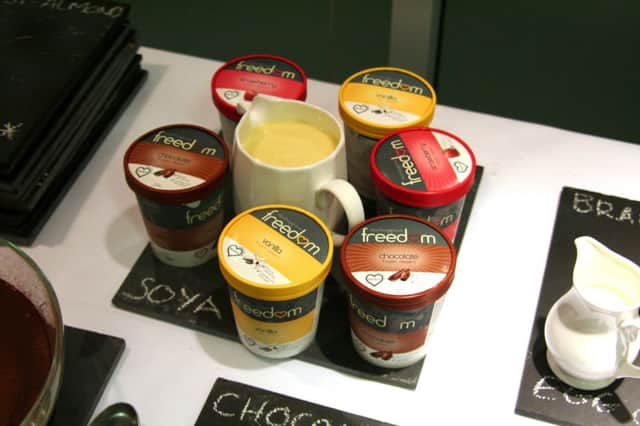Concerns over health set to boost '˜free from' foods to £500m sales


A third of UK consumers say they have bought a free from product, such as gluten-free bread or dairy-free yoghurt, in the past six months.
The report from Mintel shows that sales of free-from foods are forecast to grow 13 per cent to reach £531m in 2016, up from an estimated £470m in 2015.
Advertisement
Hide AdAdvertisement
Hide AdAlmost a quarter of people who say they have brought a free-from product said they have opted for something gluten-free, while 19 per cent have bought dairy substitutes such as soya cheese, 16 per cent prefer wheat-free ranges and 16 per cent chose to buy something lactose-free.
Earlier this year, Scottish chefs revealed that restaurants are seeing an increasing demand for “bare food” dishes which cater to diners’s “extreme” healthy eating tastes.
Meanwhile, Edinburgh-based Genius, which supplies most major supermarkets with items including bread and pastry, last year posted a rise in turnover of 37 per cent to almost £42m as demand grew.
Kiti Soininen, head of UK food, drink and foodservice research at Mintel, said: “The free-from market enjoyed remarkable growth in 2015, and further growth is likely to come from the existing pool of users intending to spend more.
“The growing availability of free-from food and drink products at mainstream supermarkets has allowed established users to widen their repertoires, with easy availability potentially prompting more regular use.”
While people with serious conditions such as coeliac disease need to avoid gluten as it makes them ill, many people believe they have an intolerance to certain foods. The top reason given in the survey by people who eat gluten-free foods was it made them feel better. Almost one in five women said they eat free-from foods as they suspect they have an allergy or intolerance, against just one in ten men.
Ms Soininen said: “The ‘health halo’ of free-from foods is a key driver of uptake and has resulted in a much larger group of users than the limited number of actual or suspected allergy or intolerance sufferers. However, this leaves the free-from food category exposed to changes in consumer opinion.”
However, the higher price of free-from products puts some people off buying them – two-fifths of people who do not eat or buy free-from food say it is too expensive. Meanwhile, 22 per cent of non-users saying free-from products do not taste as good as standard alternatives, while one-fifth say the quality is not as good.